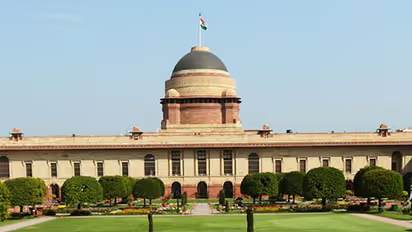10 things elected representatives should keep in mind while voting for India's next President

Synopsis
According to the poll panel, the counting will take place on July 21. The present President Ram Nath Kovind's tenure expires on July 24, and an election for the next president must be place before that date. Here is a list of things for elected representatives to keep in mind while voting for the next President:
The Election Commission announced on Thursday that the election for India's next President will take place on July 18. According to the poll panel, the counting will take place on July 21. The present President Ram Nath Kovind's tenure expires on July 24, and an election for the next president must be place before that date.
Chief election commissioner Rajiv Kumar announced the schedule for electing India's 16th President, saying that the notification for voting will be issued on June 15, the deadline for filing nominations will be June 29, the date for candidate scrutiny will be June 30, and the deadline for withdrawing nominations will be July 2.
Also Read | Presidential election to be held on July 18, voting on July 21
Here is a list of things for elected representatives to keep in mind while voting for the next President:
- The Election Commission will provide each elected MP and MLA with a pen with which to indicate their preference. Other pens will not be accepted.
- Elections will take place in both the Legislative Assemblies and the Parliament House.
- During presidential election voting, no political party may issue a whip.
- The COVID-19 regimen must be followed, which includes wearing face masks and social distance.
- During the election, the use of plastic materials is forbidden.
- MPs and MLAs can vote from other locations if they offer adequate notice and obtain authorisation 10 days in advance.
- The nominated members of the Rajya Sabha and Lok Sabha, as well as the Legislative Assemblies of the states, are not eligible to be included in the Electoral College and hence are not eligible to vote in the election.
- The members of the Electoral College, which includes elected members of both houses of Parliament and elected members of the Legislative Assemblies of all states, including the National Capital Territory of Delhi and the Union Territory of Puducherry, elect the President of India.
- The total number of votes is calculated based on their worth, which varies by state, with an Uttar Pradesh MLA having the greatest value, followed by Maharashtra and West Bengal.
- "Vote counting will take place in New Delhi under the supervision of the Returning Officer. The Return of Election will be provided by the Returning Officer after the counting is completed," the CEC stated.
Stay updated with the Breaking News Today and Latest News from across India and around the world. Get real-time updates, in-depth analysis, and comprehensive coverage of India News, World News, Indian Defence News, Kerala News, and Karnataka News. From politics to current affairs, follow every major story as it unfolds. Get real-time updates from IMD on major cities weather forecasts, including Rain alerts, Cyclone warnings, and temperature trends. Download the Asianet News Official App from the Android Play Store and iPhone App Store for accurate and timely news updates anytime, anywhere.